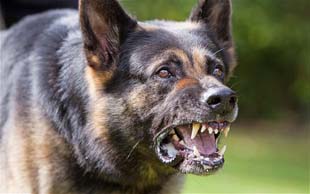
Dogs and the Law
There are two laws in this country which deal with the subject of dangerous dogs. They are:
The Dogs Act 1871 – a civil law
The Dangerous Dogs Act 1991 ( amended 1996) – a criminal law.
Either of the above can be used to prosecute a case. It is a common misconception that the above only apply to certain breeds of dog. In the Dangerous Dogs Act, there are provisions for four breeds; The Pit Bull Terrier, The Japanese Tosa, The Dogo Argentino and The Filo Braisileiro. However, both Acts apply to every single breed of dog on the planet, from toy breeds to giant. In the Dangerous Dogs Act it states that an offence has been committed if your dog is "dangerously out of control in a public place" and the Dogs Act also outlaws dangerously out of control dogs.
The Dogs Act 1871 is a civil procedure and can be brought by the police or a private individual. Importantly it makes provision for dogs that are dangerously out of control in a private or a public place.
It is a popular misconception that "dangerously out of control" means aggressive. A dog can knock an old lady over with exuberance, dash in front of a cyclist causing him to swerve, or simply put a person in fear of their safety and the owner is in breach of the above. If the case is prosecuted under the DDA 1991 and a guilty verdict is returned, the owner will have a criminal record and can incur a fine and possibly even a prison sentence of up to six months.
If there has been no injury (and injury does not have to mean a bite, it can be an incidental injury such as a fall) the courts may invoke a control order - usually that the dog is walked muzzled and on a lead in public for the rest of it's life. If there is an injury, even a slight one, the courts have the power to order destruction of the dog. However, the courts have backlogs of cases to be heard and it is not unusual for a case to take twelve months to come to trial. If a dog has been seized by the police under the DDA, it will be placed in kennels awaiting trial and owners will be allowed no contact. Even innocent dogs have to undergo this stressful ordeal before they can be reunited with their owners.
There are more and more dog cases coming to trial currently and your dog is definitely not in the clear if it is " not one of those breeds" or if it did not intend any harm. An out of control dog – whatever the motivations of it's actions, is subject to the law like any other and you as it's owner may then face prosecution.
It is absolutely vital that all owners train their dogs to the basic obedience commands and socialise them from an early age to ensure that they can mix safely with other dogs in public and prevent the risk of dog and owner facing the courts.


